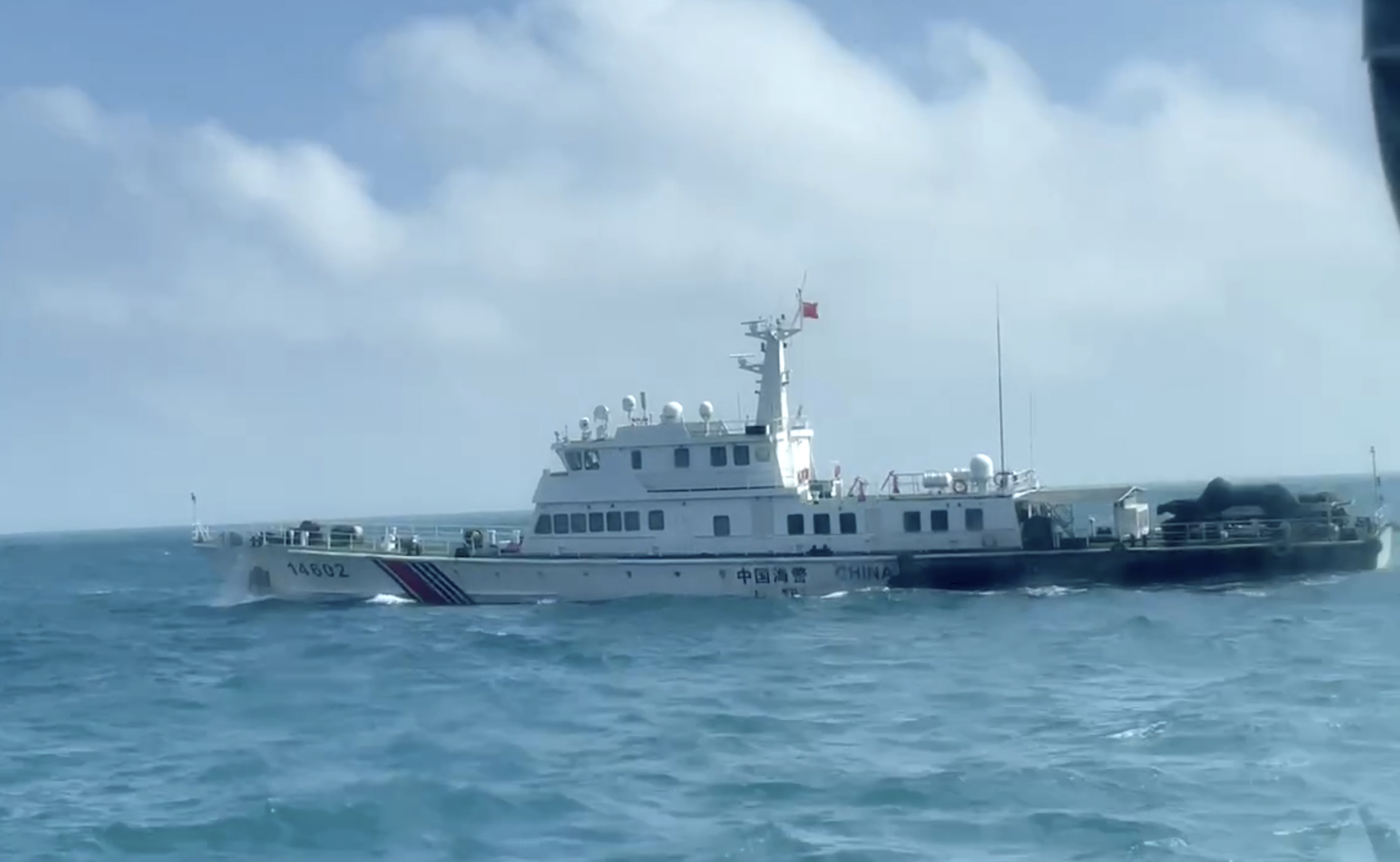China has ramped up its military presence off the southern coast near Pingtan Islands in Fujian province, conducting live-fire drills that many interpret as a show of force toward Taiwan.
This activity follows a major air and sea operation just a week prior, where China labeled its actions as punishment for Taiwan’s president rejecting Beijing’s claims over the island.
China’s Taiwan Affairs Office stated, “This is a resolute punishment for Lai Ching-te’s continuous fabrication of ‘Taiwan independence’ nonsense.”
The Maritime Safety Administration has issued warnings to vessels to steer clear of the drill area, but details regarding the exercises’ extent or duration remain undisclosed.
Taiwan’s Defense Ministry is keeping a close watch, indicating that these drills are likely part of China’s annual military exercises. They noted that these maneuvers might aim to enhance deterrence in response to ongoing dynamics in the Taiwan Strait.

Taiwan Coast Guard via AP
Taiwan operates as a self-governing entity, although Beijing insists it is a part of China. Tensions have intensified recently, highlighted by China’s increased military activities around the island, including numerous deployments of warplanes and naval vessels.
Last week, a one-day military exercise focused on sealing off strategic ports and zones resulted in Taiwan witnessing a spike in military activity, with a record 153 aircraft and numerous Chinese vessels in the area.
In response to these maneuvers, the U.S. has been active in ensuring freedom of navigation in the Taiwan Strait. Recently, the USS Higgins destroyer and the Canadian frigate HMCS Vancouver passed through the strait, demonstrating their commitment to regional security.
This follows Germany’s recent deployment of two warships through these waters as part of its broader defense strategy in the Asia-Pacific region.

Ng Han Guan/AP, File
On the diplomatic front, China has been striving to weaken Taiwan’s international recognition. Recently, South Africa, which does not acknowledge Taiwan’s sovereignty, asked the island to move its liaison office from Pretoria as a concession to Beijing.
Taiwan firmly rejected this request, reinforcing its determination to uphold its international presence despite growing Chinese pressure.
As these tensions continue to develop, both military activities and diplomatic initiatives in the Taiwan region remain critical for observers globally and regionally alike.
This article includes reporting from The Associated Press.
